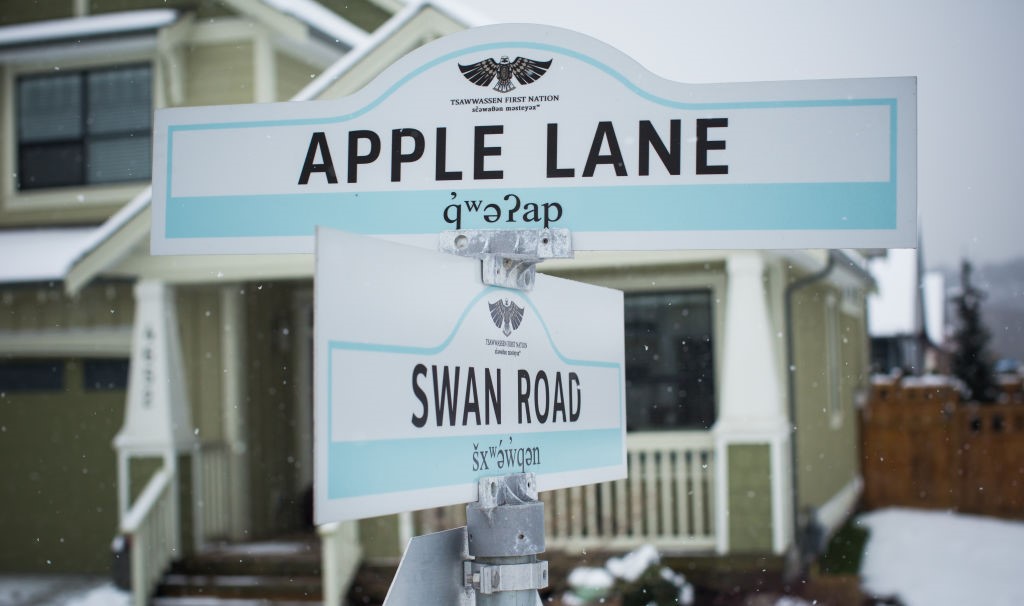How to Decolonize Your Business
Many companies admit they don’t know how to get started. So we spoke to an expert about where to begin and the obstacles to overcome

When the Truth and Reconciliation Commission of Canada launched its 94 calls to action, the country’s corporate sector got an explicit shout-out. The commission called for businesses to work more determinedly to include Indigenous people and worldviews in shaping the country’s economic future.
To mark National Indigenous History Month, Smith Business Insight’s Meredith Dault sat down with Lindsay (Kawennenhá:wi) Brant, term adjunct, Indigenous curriculum and ways of knowing at Smith School of Business, who is a member of the Mohawks of the Bay of Quinte band in Tyendinaga Mohawk Territory. In this interview, Brant explains what decolonization means and why it should be part of a company’s long-term strategy.
Meredith Dault: What is the difference between “Indigenizing” a business and “decolonizing” a business? I have heard the terms used interchangeably. Do they mean the same thing?
Lindsay Brant: No, the terms are different. Decolonizing is more about dismantling colonial structures and systems. It requires examining policies, practices and procedures at a business level to see if there is a way to change them up, as well as better incorporating Indigenous ways of knowing. This is where it is connected to Indigenization — because if decolonization is about dismantling and undoing colonial practices, then Indigenizing can be seen as the redoing or reaffirming of Indigenous ways of knowing and being, as well as incorporating Indigenous practices into business.
Decolonization values people over profits. If you are a natural resources firm, for instance, you can begin thinking about your values, striving for social responsibility, sustainability and thinking about how Indigenous worldviews and perspectives on the environment might help guide some of these discussions and shifts.
The concepts of reciprocity and relationship are so important to many Indigenous communities, and so a great place to start is to consider how you might build relationships with Indigenous communities around you and thinking of ways of giving back.
Those are not necessarily easy tasks. What is the best way to get started?
Yes, I agree that it is sometimes seen as an overwhelming task, and “where do I begin?” is definitely one of the main questions that people ask. I think the first step is to do an environmental scan of what you have going on in your business. Look at the people around you, including your board of directors or leadership team. Is there room for Indigenous voices where there may not be any currently? Could you recruit some Indigenous board members?
You can also look at your procurement practices. Are you able to purchase from Indigenous businesses or from businesses that give opportunities to Indigenous people? Next, create actionable steps for yourself and your business. For example, think about one thing you can do this year, whether that is setting up a scholarship fund for Indigenous students or hiring more Indigenous employees.
How important is it that businesses share these efforts with the public?
I think it is important for companies to be transparent about what they are doing — but follow-through is important, too. For example, I have seen many businesses outlining their goals for decolonizing and Indigenizing on their corporate website, but then there is no follow-through indicating whether they met those goals or how they achieved them.
Having quantitative data that people can look at is also important. Personally, I prefer to support businesses that are transparent and open about their efforts, and who provide updates on their website or on social media so that consumers can decide what companies they want to support. It is also a way for businesses to learn from one another about what’s being done.
Why is it important now for businesses to think about decolonization?
The Truth and Reconciliation Commission’s calls to action really laid out why this work is so important, both for businesses and corporations, and even for institutions of higher education. We know that there are a lot of employment gaps and disparities when it comes to Indigenous representation in certain fields and in leadership positions overall. So, having pathways and programs that support Indigenous employees is crucial to building up the required workforce.

It is important to read the calls to action that address business. They not only focus on the importance of training but also on maintaining cultural awareness and providing cultural safety training. That is because we know that it is not enough to just be able to attract Indigenous people into positions. It is also important to create a workplace culture that supports them and that can sustain them. Having a place of employment where people feel valued, seen and heard is so important.
What do people misunderstand about the notion of decolonizing business?
There are a couple of things that are commonly misunderstood. One is that it can easily become just a “checkbox” thing for a business — like, okay, we’ve done this so we must have decolonized, or we must be Indigenizing if we’ve done this. For instance, while increasing recruitment efforts and hiring of Indigenous staff is a great step, it should not be the only step you take. It’s really an ongoing process and will take a while before you see change. That’s why it is also important not to get frustrated if you are not seeing change right away – instead, stay focused on your longer-term goals and know that it will take a long time to see the ripple effect from those changes. The other mistake businesses face is that they often get stalled at the “where do I begin?” phase, and that prevents them from taking real action, or they end up looking to Indigenous people to lead the change. Instead, I think settlers have a responsibility to gain their own knowledge and cultural awareness so that they can jump in and begin acting themselves.
What is the best way for businesses to avoid these mistakes?
I know there can be a hesitation and a fear of making a misstep or of not doing the right thing, but I think it’s important to get over that. Create measurable steps that your business can take towards decolonization. Figure out the path forward for your business and recognize that there are bound to be mistakes. Mistakes happen when you are doing work that is new to you, or new to your business and employees. Approaching it with humility and a willingness to learn and grow is really important.